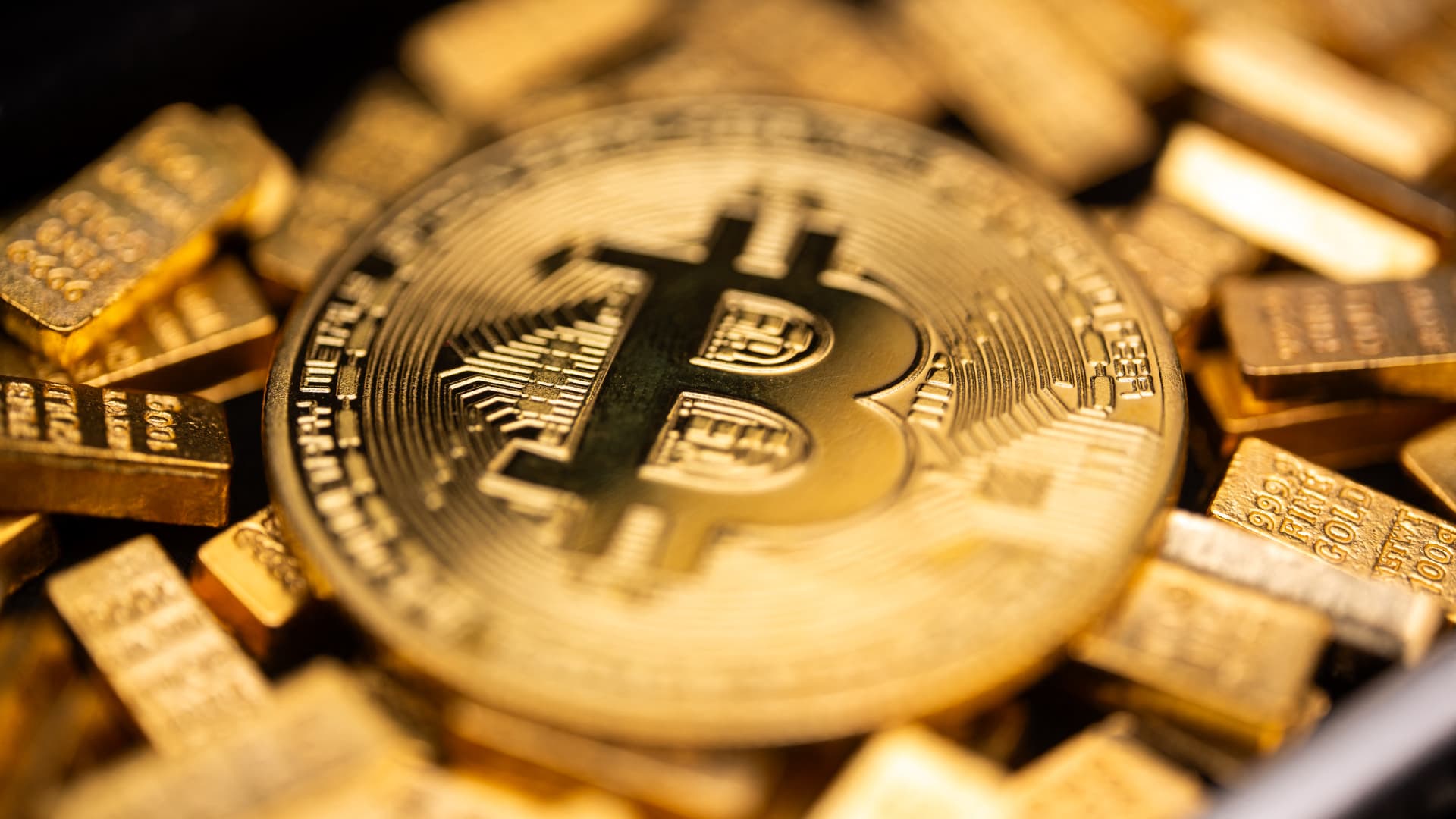Deutsche Bank, one of Germany's largest banks, recently published research suggesting that Bitcoin (BTC) is on track to join gold as a reserve asset for central banks by 2030. This prediction, if accurate, could disrupt gold's dominance as a primary reserve asset for nations.
Deutsche Bank argues that Bitcoin and gold will coexist as complementary hedges against inflation and geopolitical risks due to their scarcity and low correlation with other assets. Their high liquidity and independence from any government make them attractive diversification tools for monetary authorities.
Compared to gold, Bitcoin boasts superior portability and accessibility. The cost of storing 0.001 BTC or 10 million BTC is virtually the same. This makes Bitcoin reserves potentially more valuable than gold during times of conflict, as physically moving tons of gold out of a country is difficult and expensive.
Bitcoin's historical volatility has been a major obstacle to its use as a reserve asset. However, Deutsche Bank analysts believe this volatility is decreasing. Its 30-day volatility reached a historic low in August, even as the price broke the $123,500 record. This suggests that the cryptocurrency may be moving away from its speculative past toward greater stability.
Deutsche Bank analysts noted that Bitcoin's recent performance highlights "its emerging status as a potential macro hedge." According to the bank, digital assets may be becoming a counterbalance to traditional reserve assets.
Currently, over 180 companies have added cryptocurrency to their balance sheets. The analysts suggest that a carefully managed Bitcoin allocation could be a valuable addition for central banks. Significant inflows into BTC further strengthen its position. Since the end of 2023, over $50 billion has flowed into US spot Bitcoin ETFs.
The US, the world's leading economy, decided to establish a strategic Bitcoin reserve in March. The initial reserve will contain over 207,000 BTC seized from criminal cases. The states of Texas, Arizona, and New Hampshire have passed laws to establish public Bitcoin reserves. Texas will actively fund its reserve, allocating $10 million from the state budget to purchase Bitcoin.
Other countries are also embracing cryptocurrency. In 2021, El Salvador became the first country to adopt Bitcoin as legal tender. As of April, it held 6,246 BTC, worth approximately $705 million USD. Kazakhstan is considering investing its gold and foreign exchange reserves in Bitcoin. A special administrative region in Bhutan announced plans to adopt digital assets, including Bitcoin, as part of its strategic reserves. Bhutan holds 10,565 BTC and uses hydropower for mining.
Deutsche Bank observes that Bitcoin adoption is following a similar trajectory to gold. Investors and the public are shifting from skepticism to wider acceptance, with regulations, macroeconomic trends, and facilitating processes increasingly favoring Bitcoin. As investors continue to seek alternatives to traditional assets, Bitcoin could evolve from a "speculative bet" into a legitimate pillar of the global financial system.
Experts emphasize that Bitcoin's limited supply, with approximately 95% of the 21 million units already mined, coupled with its low correlation to conventional assets, could encourage central banks to treat it similarly to gold. Clearer regulations, evolving macroeconomic conditions, and improved technological infrastructure are key factors in Bitcoin's transition from skepticism to mainstream acceptance.
 |
The Bitcoin logo placed among gold bars. Photo: CNBC |
The Bitcoin logo placed among gold bars. Photo: CNBC
However, according to Deutsche Bank, neither Bitcoin nor gold is likely to overthrow the US dollar, as governments will act to protect their monetary sovereignty. Currently, the USD accounts for 57% of global reserves, but a diversification trend is emerging. China's USD reserves decreased by $57 billion USD in 2024. Concurrently, regulations to legitimize cryptocurrency are being developed in major markets. For countries seeking to reduce their reliance on the USD, Bitcoin is seen as a viable candidate.
"In the future, Bitcoin and other alternative assets may continue to compete for our attention," the bank added.
Tieu Gu












